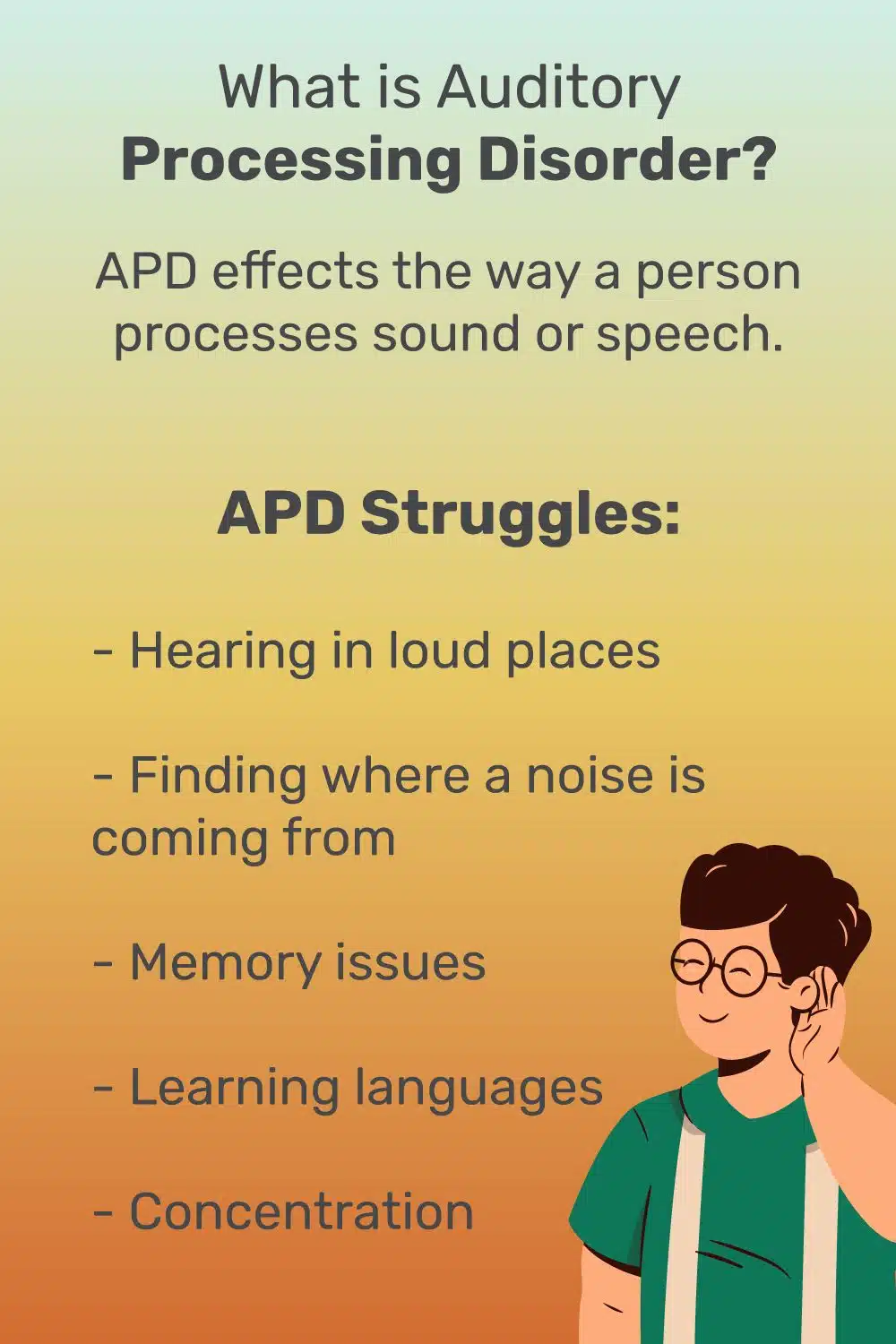Central Auditory Processing Disorder (CAPD) is a condition where a child’s brain has trouble processing sounds, even though their ears work fine. Kids with CAPD may struggle to tell similar-sounding words apart or have a hard time understanding speech in noisy places.














